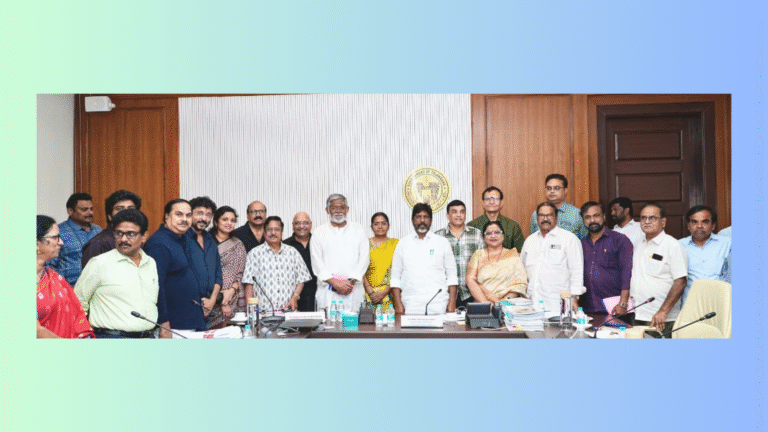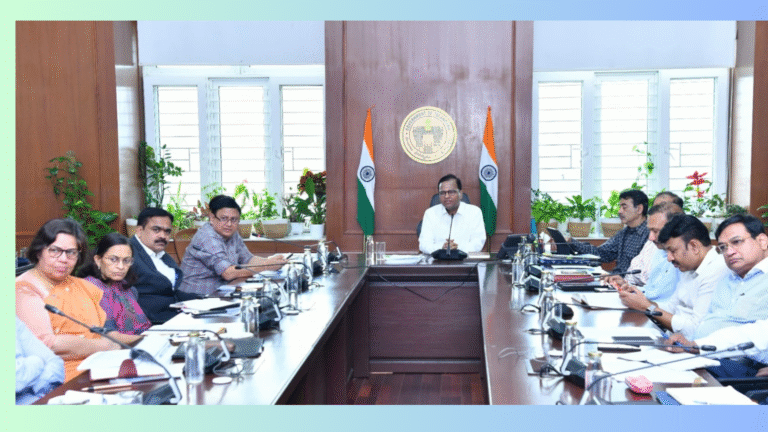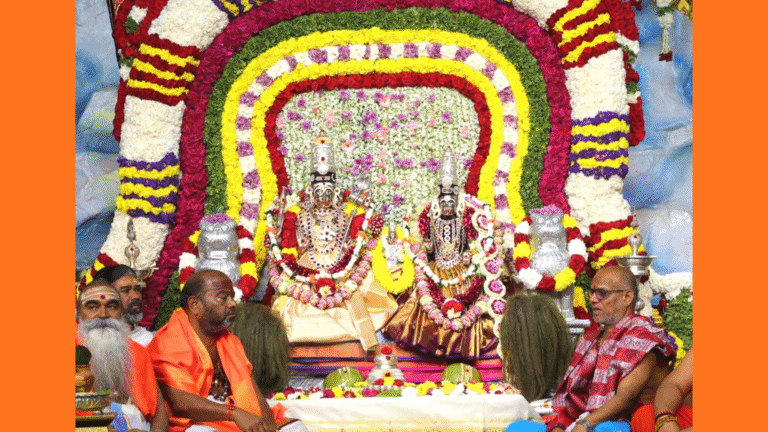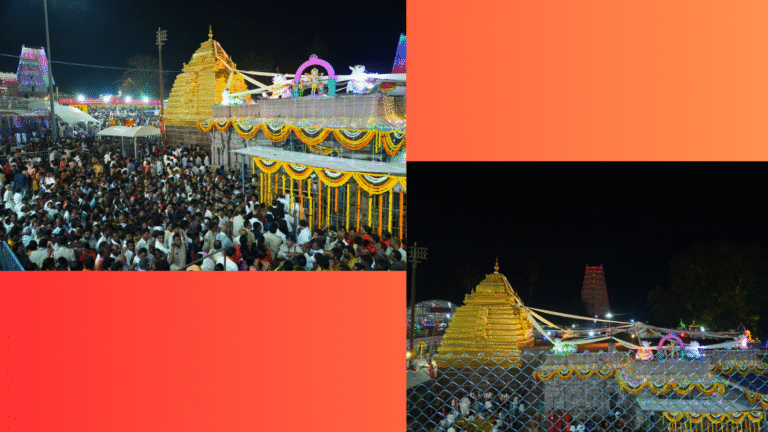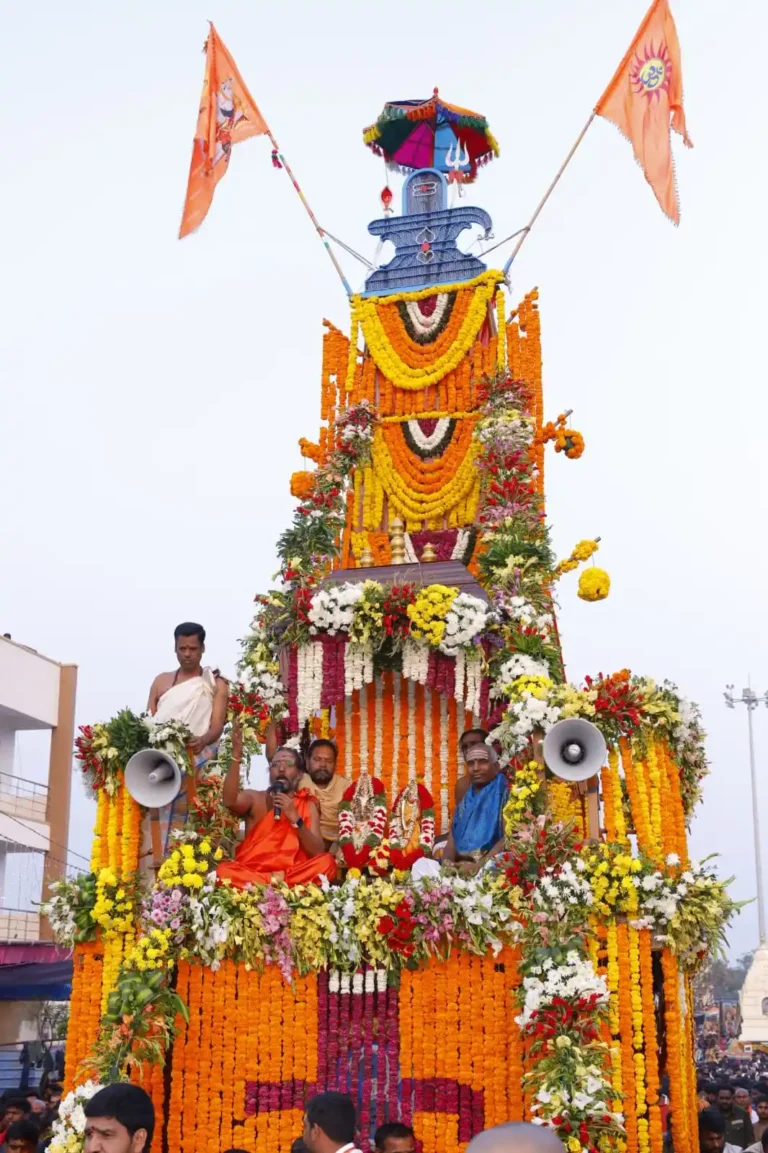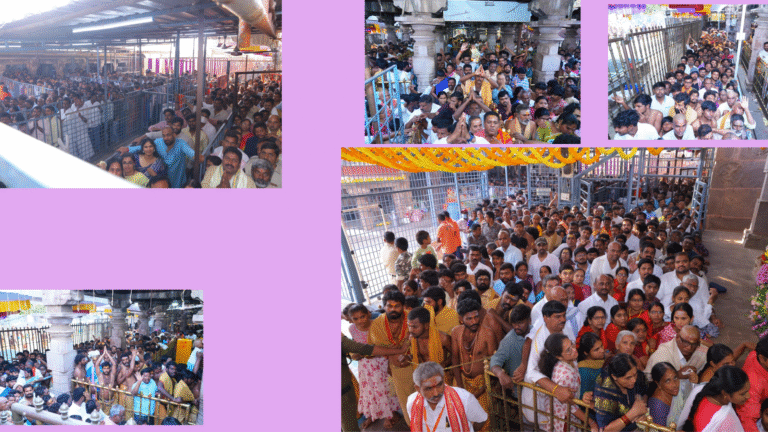On the second day of tour, the A.P. Chief Minister’s programme started in the MBS Convention & Exhibition Centre, in which he was first given a tour of City Solutions Singapore Exhibition led by Mr Khoo Teng Chye. This followed a visit to the Amaravati Pavilion and the Singapore Government Pavilion.
The looked at various exhibits in these tours, and the best practices in the expo, including Sports Singapore, public health, Sustainable Singapore, affordable public housing, designing Sustainable habitats, innovation, water and sewerage infrastructure, financing and construction.
He also looked at using space innovatively to manage increasing urban population, and directed the delegates from the AP government to study the practises for appropriate modification and possible implementation in AP. He also asked the team to study innovation in Singapore in biodiversity maintenance practises.
After the tours, the Chief Minister participated in a panel discussion, ‘Urbanisation-Water, Environment and Transport Management’.
The fellow participants in the panel were Kristalina Georgieva CEO, The World Bank Group, Dr.Thani Al Zeyoudi, Minister of Climate Change and Environment, UAE, Steven Demetriou Chairman and CEO, Jacobs and Bernard Charles Vice-Chairman & CEO, Dassault Systémes.
The opening remarks for the session were made by the Guest-of-Honour, H.E. Tharman Shanmugaratnam, Deputy Prime Minister and Coordinating Minister for Economic and Social Policies, Singapore.
H.E. Mr. Shanmugaratnam welcomed all the delegates. “The world faces a complex challenge in risks like climate change, unequal growth, poverty. Each of these problems are compounded by each other. If countries don’t tackle the problem, the problems will aggravate and spread to other countries.”
“We need to effectively plan growth to spur economic growth, innovate solutions and adapt to the conditions of different countries. We need to deeply analyse solutions that are being developed and implemented by different governments. Waste, energy and water are the closely linked pivotal points, and we need to look at multi-faceted solutions.”
“We need to develop social networks for economic growth of cities and for sustainable infrastructure development.”
The keynote address was delivered by His Excellency Ranil Wickremesinghe, Prime Minister of Sri Lanka. “Singapore has developed from poor country to one with the best living conditions in Asia. Urbanisation is the dominant trend in the world and we need to draw lessons from successful cities like those in Singapore. Cities are now the wealth creators thereby attracting huge inward migration.”
“They now face poor air quality, water and climate and higher crime and we need to address these issues. We envisage the Western province in Sri Lanka as our key development area. Additionally, we must address the interest of marginalised and poor communities.”
“Climate change is causing disturbance in the existing order of things like disrupted water systems, changed land use patterns and more. Global leaders must search for successful interventions and speedily adapt them for local use.
The first speaker in the panel discussion was Ms. Georgieva, CEO of the World Bank. She said that key ingredients for success of projects in water and environment sectors are to provide the right incentives to wisely use resources, and the alignment of priorities at all levels in governance and public, ensuring that all sections of society benefit from interventions.
In his address, he spoke about the functioning of real-time governance through the data that is available online. “Use of technology and infrastructure are essential to meet goals of water and environment and to make cities liveable. Knowledge, IT enable us to manage resources real-time. Groundwater, surface water, temperatures, air quality and other such data is available real-time with the help of internet,” he said.
“We have been able to increase ground water through effective strategies like linking rivers, recharging ground water and managing waste water. We will be able to provide sufficient water for industrial, agricultural and drinking water purpose. We are effectively managing liquid and solid waste in cities and villages.”
“For moving in the direction of sustainable agriculture, we are promoting Zero Budget Natural Farming. 5 lakh farmers have started making use of ZBNF to improve their harvest.”
He said that he was confident of the success of efforts being made for the development of Amaravati. He also answered the questions regarding leadership, use of renewable energy in Andhra Pradesh and how Amaravati will be a blend of technology and ancient legacy.
The Editor, Asian Water Magazine asked the Chief Minister, “It is heartening to have such a forward looking CM who is so eager to bring in carbon neutrality, modern methods of water and waste management. I would like to appreciate that. Are you taking inspiration from the rich history and civilisation values of the ancient Indian knowledge system?”
To this, CM responded with, “From the ancient times, we have been innovative. Carrying that legacy forward I decided to build the best city. Although it is difficult to build a city with hurdles like bifurcation and resource crunch, we came up with the unique idea of land pooling, in which we asked them to give their lands for the capital city and promised to give 5% more value of their lands.”
“We are working towards building sustainable and green buildings in the new capital. Amaravati will be a new generation capital which will be a blend of technology, innovation and culture. Ultimately, we want to make it the happiest city and one among the top 5 cities in the world.”
The Editor then asked how the AP government is planning to build resilience within the community and critical infrastructural realisations?”
The Chief Minister responded to this by saying, “Future is going to change in developing countries with the emerging clean and renewable energy trends. In AP, we were procuring power at ₹5 per unit. The price came down to ₹2 per unit with the help of energy generation through solar power. Usage of electric vehicles is another step taken. As on today, 20% of the power generated in AP is from renewable sources. We are reducing our dependency on thermal and nuclear energies.”
He said that power storage is one of the challenges that Andhra Pradesh faces. But the government is confident that, in the near future AP will develop smart power grids which will automatically decrease the transportation losses.
“NEWater is an excellent product in Singapore. I admire how the PM assured citizens about the quality of the product by drinking the first glass of treated water himself. In Andhra Pradesh we have been successful in solid waste management and methods of liquid waste management are what we want to explore now. For this, ‘waste to wealth’ is our motto. We look forward to conserve this limited resource through recycling like Singapore.”
“Protecting the nature is another priority of AP government by using clean energy like solar and wind energies. Switching to electric transportation can help us in controlling pollution to some extent,” he added.
Chandrababu Naidu lunch meeting with leading industrialists:
The Chief Minister Nara Chandrababu Naidu had a lunch meeting with leading industrialists in Lee Kuan Yew Institute before participating in the meeting of Asia Policy Forum. The topic for the meeting was “Transformation Change and Health Checks for Singapore Small and Medium Enterprises”.
Later, an MoU was signed between Asia Competitiveness Institute – Lee Kuan Yew School of Public Policy and the Government of Andhra Pradesh by Professor Danny Quah, Dean, LKYSPP and Chief Secretary Anil Chandra Punetha. The MoU is to deepen cooperation in research and training to improve competitiveness of Andhra Pradesh.
The Chief Minister also launched two books:
“Balanced, Sustainable and Competitiveness Enhancement (BSCE) Study for Vietnam: A Critical Evaluation with Development Potentials” by Minister Heng Swee Keat with Dr. Vu Tien Loc, Chairman and President, Vietnam Chamber of Commerce and Industry and
“Productivity Tracking and Efficiency Monitoring of Singapore’s Small and Medium Enterprises” by Professor Danny Quah, Dean, LKYSPP.
The Chief Minister was the keynote speaker at the program held in the LKY Institute, and spoke about “Potential Investment Opportunities and Dynamic Economic Development for State of Andhra Pradesh”.
He admired LKY Institute as one of international repute at the cutting edge of research. “Singapore grew from adverse conditions into a world economic powerhouse. AP also faced bifurcation four years ago and is navigating through all the initial obstacles. Singapore has helped us prepare a master plan for our capital in the initial days of the state, and we will be forever indebted to them.”
“Our vision is to be among the top 3 states in the country and the number one state in India by 2029 with the happiness of citizens kept as the basic principle. We are attracting a lot of FDI and we are number one in EoDB. We want to be among the best in the world and LKY institute is already helping us in the planning stages and for public policy.”
“We already have a large traction in the automobile sector. We have huge investments in food processing like Mondelēz International Inc., Pepsi, ITC and several MSMEs. Tirupati is now the hub for electronics and manufacturing. Foxconn too, has a large manufacturing facility in AP. Our single desk bureau has been very effective in granting early clearance for industries. All investments are tracked real time and followed up efficiently by officials.”
“We are building infrastructure grids to make manufacturing and business easy, like the smart water grid, gas grid, roads grid, power grid and fibre grid. Our infrastructure includes world class ports, airport infrastructure, quality and reliable 24X7 power, abundance of land, 2 industrial corridors and road and rail connectivity.”
“We are leveraging technology to ensure effective implementation of welfare measures, and are developing outstanding social infrastructure with universities, schools, hotels, hospitals and more. To ensure sustainable ecology, we are increasing our green cover and promoting ZBNF in a big way. Our policies are best in class and we provide the best incentives for our investors.”
He also spoke about Amaravati being a major point of investment due to its blue and green nature with a 30 km waterfront, social infrastructure and trained manpower. All our welfare programs are well-targeted and reach intended beneficiaries due to Aadhar-seeding and use of technology.
He appealed to the audience, and asked them to look at Andhra Pradesh for investments and make it their second home.
Chandrababu Naidu had a brief visit to NEC:
On the second day of his tour, Chief Minister Chandrababu Naidu had a brief visit to NEC, a research center specializing in big data analysis for data authentication and facial recognition.
On his visit to the center, the Chief Minister told officials and the delegates present that Andhra Pradesh is looking at the next level of data authentication. “We are already using fingerprint, facial recognition and iris recognition for Aadhar and want to go one step ahead”, he added.
The Chief Minister also spent time understanding the methods used by NEC through which analytics have been used till now for calibrating outcomes. He also enquired if this lab can scale the operations to suit the needs of people and Government back in Andhra Pradesh and the usage of similar data analysis methods to ensure complete accountability in other domains.
Chief Minister interacted with the Indian industrialists:
The Chief Minister interacted with the Indian industrialists at the AP- Singapore Industry Business Round Table Meeting held on the second day of his tour to Singapore. The meeting was also attended by Singapore’s National Development Minister, Desmond Lee and Indian Ambassador to Singapore, Jawed Ashraf along with All Industries Associations of Singapore.
Speaking on the AP- Singapore collaboration, Minister Desmond Lee said, “Both Amaravati and AP provide a great scope for the Singapore Industries and particularly the housing industries of Singapore which also deal with material manufacturing.”
“There is a great scope for greenfield construction in not just Amaravati but the rest of AP as well. Facility management is another area which offers great business opportunities in AP”, he added.
J. Krishna Kishore, CEO, Economic Development Board (EDB) of AP made a presentation to the delegates present which highlighted the growth story of AP along with investment opportunities in the state.
Chief Minister Chandrababu Naidu thanked Minister Desmond Lee for organizing this interaction with builders, developers, and manufacturers and said, “ We are developing qualitative manpower and are making sure that AP is well equipped with all kinds of infrastructural facilities. Singapore has been a great ally to AP and people here possess high levels of integrity and work ethics and we are learning a lot of best industry practices from them.”
AP and India are working and moving fast to improve urban infrastructure. Along with infrastructure and quality of life, AP is also looking to improve its tourism industry. Hence, we are keen to set up a construction city where we bring together manufacturing, trade, contractors. For this purpose, I need cooperation from not just businesses in AP and Singapore but the Government of Singapore as well”, he added.
Speaking on the investment opportunities in Amaravati, the Chief Minister said, “Amaravati provides opportunities for all to grow and the city is blue and green and is going to be healthy for all to live.”
“To make the dream of creating a world-class city like Amaravati, we need the construction city to be established and I invite suggestions for the same”, he concluded.

